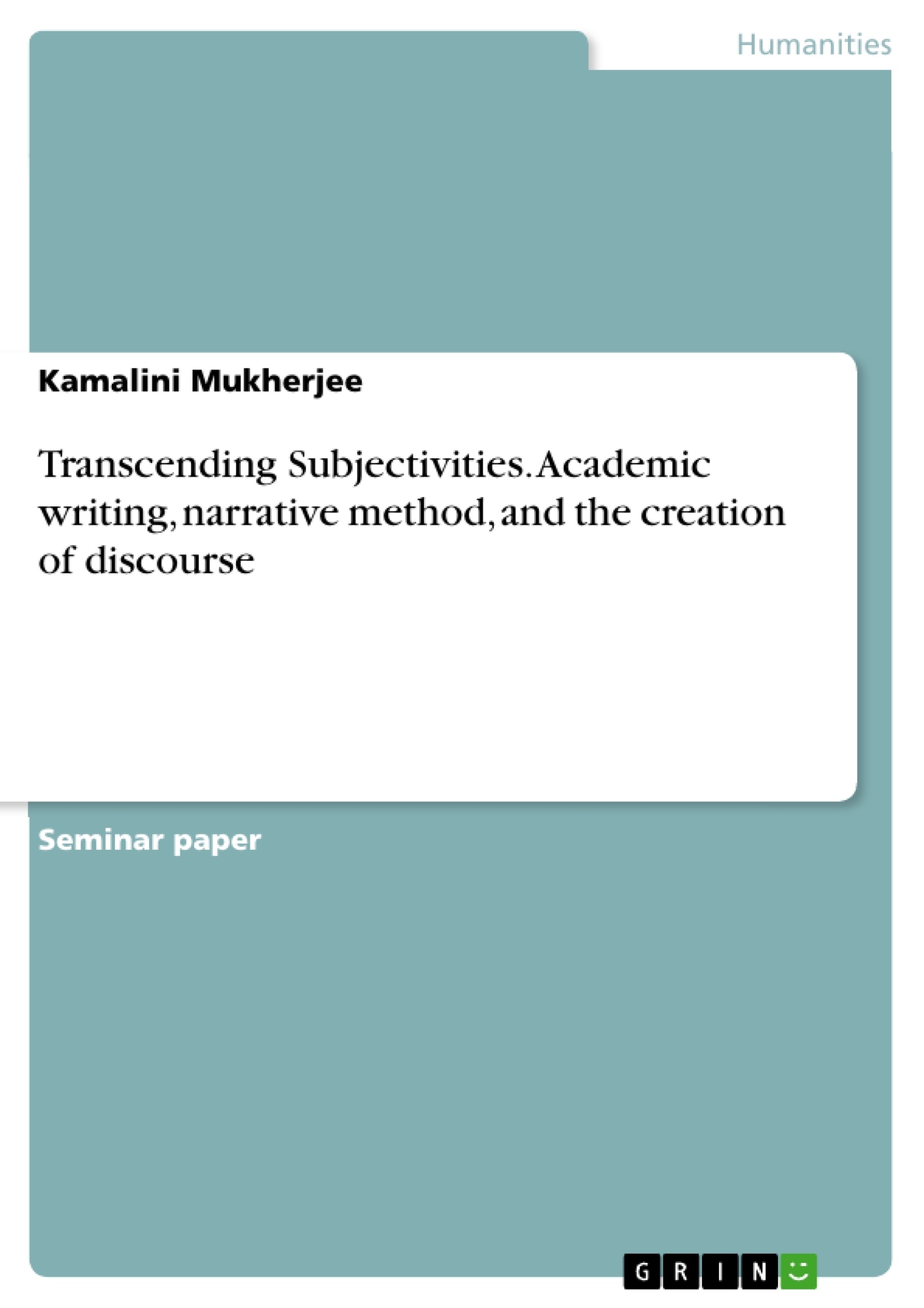This paper is an attempt to create the bridge between how academic writing is shaped in the traditional training, and how it often desires to be expressed in subjective voices. Conducting a research into the twilight zone of sexual identities does desire unconventional methods, however, there are degrees that can be explored between subjectivity and objectivity to create a space beyond binary specificities. So, if presented traditionally, this paper is a collection of stories, which elucidates the need to accommodate creative writing within academic boundaries.
When we undertake discourses about issues of marginality and exclusion in society, within a strictly academic objective view, it tends to dilute the possibilities of addressing the individual as an active agent. The tradition of academic writing follows this standpoint, thereby undermining the poetics of social relations. The primary aim of social science research is the foundation of objective analysis: creating a link between an emotional organic being and the politics of evolution. The same objectivity also creates vast lacuna of knowledge, which could otherwise produce more deductive results, in research into human relationships.
My doctoral dissertation is a compilation of narratives collected over a period of three years, from individuals who voluntarily identify with the “alternative sexuality” category. I spoke to over fifteen respondents during this fieldwork, and collected their stories by conducting detailed interviews, in the regionally spoken tongue. During the translation, I realized that the tradition of compiling narratives is in a format, which clearly inhibits the possibility of writing them with the poetry of it, uncorrupted.
Inhaltsverzeichnis (Table of Contents)
- Transcending Subjectivities: Academic Writing, Narrative Method, and the Creation of Discourse
- How we write: Reconsidering boundaries of academic writing
- Excerpt 1
- Excerpt 2
- Excerpt 3
Zielsetzung und Themenschwerpunkte (Objectives and Key Themes)
This paper explores the complexities of academic writing and narrative methodology, particularly within the context of social marginality. It examines the challenges of balancing objectivity and subjectivity in research, especially when dealing with sensitive personal experiences and identities.
- The tension between academic objectivity and subjective experience in research.
- The role of narrative in understanding marginalized identities and experiences.
- The impact of heteronormative structures on individual identities and experiences.
- The potential for academic writing to transcend traditional boundaries and embrace subjective voices.
- The relationship between language, identity, and the construction of knowledge.
Zusammenfassung der Kapitel (Chapter Summaries)
The paper begins by introducing the author's research field, focusing on individuals who identify with social marginality. It then delves into the theoretical framework, drawing upon subalternism and governmentality to understand the construction of these identities. The author further explores the tension between objectivity and subjectivity in academic writing, particularly when working with sensitive personal narratives.
The paper presents three narrative excerpts: the first from a support organization for LGBTQ+ individuals in Kolkata, India, the second from the author's own fieldwork, and the third from another interview. Each excerpt highlights the complexities of identity, sexuality, and gender expression, demonstrating the challenges of capturing and representing these experiences through traditional academic writing.
The author argues for a middle ground between academic objectivity and subjective involvement, suggesting that academic writing can embrace a more nuanced approach to narrative methodology.
Schlüsselwörter (Keywords)
This paper focuses on the intersection of academic writing, narrative methodology, social marginality, identity politics, heteronormativity, subjectivity, objectivity, and the representation of marginalized experiences.
Frequently Asked Questions
What is the central theme of this paper on academic writing?
The paper explores the bridge between traditional objective academic training and the need for subjective, narrative voices in research, especially regarding marginalized identities.
Why is the narrative method important for social science research?
Narratives allow the individual to be seen as an active agent, capturing the "poetics of social relations" that strict objectivity often dilutes.
What are the challenges of translating personal narratives into academic discourse?
Traditional formats often inhibit the emotional and poetic essence of the original stories, potentially corrupting the authentic voice of the respondents.
What research field does the author focus on?
The author conducted fieldwork into "alternative sexualities" and social marginality, particularly through detailed interviews in regional languages.
How can academic writing transcend traditional boundaries?
By accommodating creative writing and subjective experiences within academic boundaries to create a space beyond binary specificities.
- Quote paper
- Kamalini Mukherjee (Author), 2014, Transcending Subjectivities. Academic writing, narrative method, and the creation of discourse, Munich, GRIN Verlag, https://www.grin.com/document/321356



